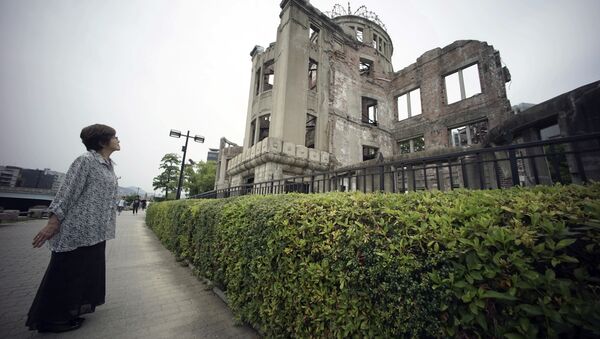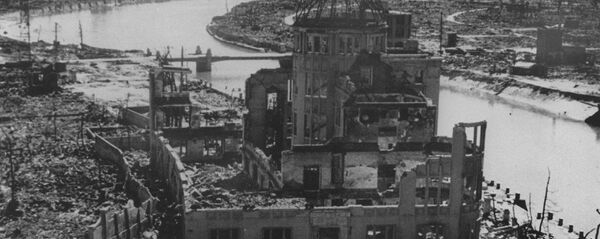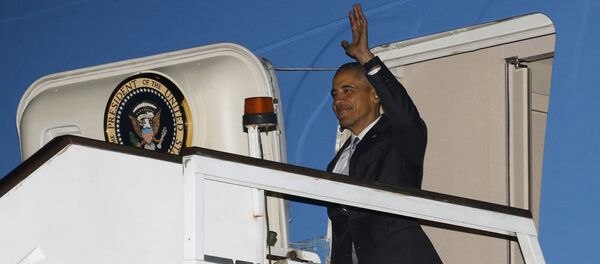Nearly 140,000 people were killed when the United States dropped an atomic bomb on the Japanese city of Hiroshima at the end of the Second World War. Tens of thousands more suffered from injuries and illnesses sustained from radiation caused by the blast.
The US government has never tendered a formal apology, and as President Barack Obama visits the city next week, his national security advisor Ben Rhodes has made clear that the trip should not be construed as a sign of regret.
"[Obama] will not revisit the decision to use the atomic bomb at the end of World War II," Rhodes wrote for Medium.
But for many of the surviving victims, an apology would go a long way toward healing old wounds.
"I urge him to apologize to those who died, bereaved families and parents who lost their children," said Terumi Tanaka, a survivor of the Nagasaki blast and current secretary-general of the Japan Confederation of A- and H-Bomb Sufferers Organizations.
Toshiki Fujimori, the group’s assistant secretary and survivor of the Hiroshima blast, expressed a similar sentiment.
"Many atomic bomb victims think it’s not all right if [Obama] doesn’t apologize," he said.
"Atomic bomb victims are demanding that it be made clear that the dropping of atomic bombs was inhumane and breaches international law, and that will be confirmed by his apology."
Earlier this month, Toshiyuki Mimaki, a member of the Hiroshima Atomic Bomb Casualty Council, told RIA Novosti that he was excited for Obama’s visit.
"It does not matter whether he [Obama] says sorry or not, whether he bends his head or not. The most important thing is that Obama will see Hiroshima, where a terrible bomb was dropped, he will visit the Peace Memorial Museum and feel what people felt there."
While the visit offers the president a chance to promote nuclear disarmament, it comes at a time when the United States is spending $1 trillion to modernize its nuclear weapons arsenal.
"By now we are accustomed to bizarre foreign policy moves from the White House. The last 15 years have seen a series of initiatives that defy reason and good sense," US academic Michael Brenner wrote for Consortium News last month.
"Against this backdrop, the program to spend $1 trillion on developing an upgraded arsenal of nuclear weapons with expanded capabilities suggests a return to 'normal' – that is, the bizarre."





